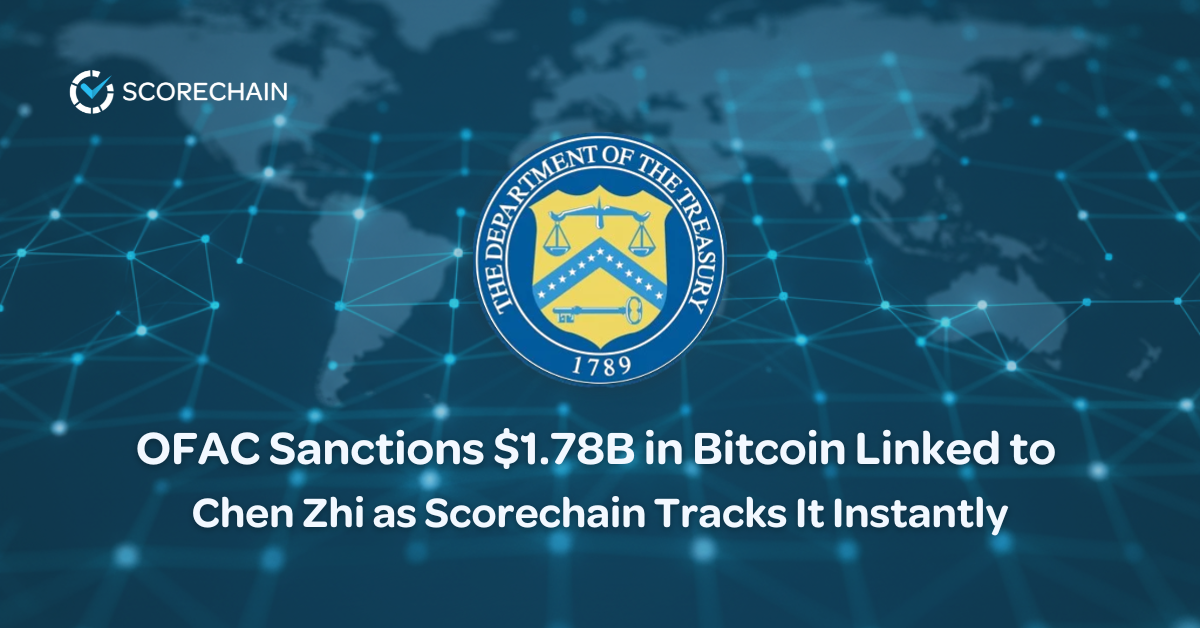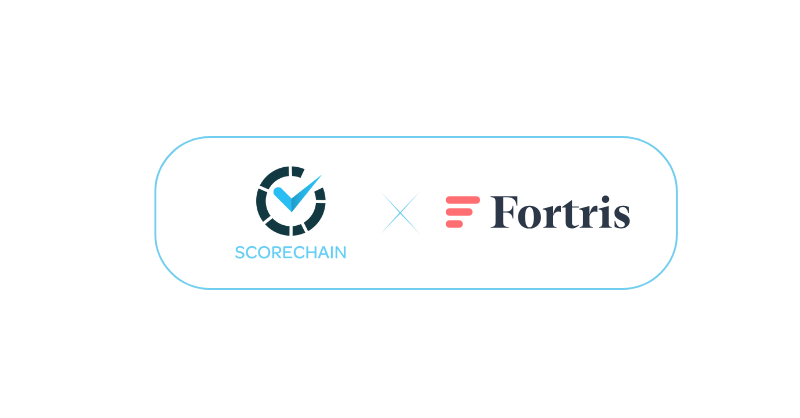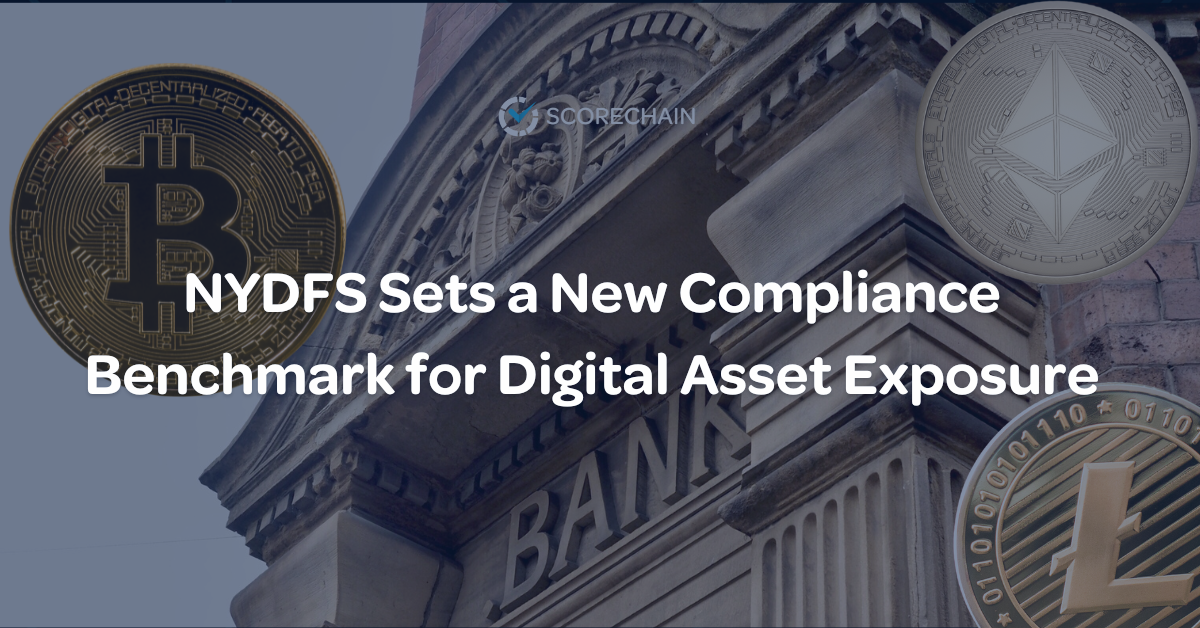FTX collapse: a leading crypto exchange FTX filed for Chapter 11 bankruptcy, announced on November 11. Following this, the company also faced a hack that drained over $500 million from their wallets on the same day. The impact of the FTX crash affects the whole crypto market as crypto assets and exchanges with exposure to FTT, FTX’s native token, or FTX, face sinking prices and financial troubles.
The collapse of FTX has caused widespread losses in the whole crypto industry. The market turbulence affected many players in the industry. Crypto lender BlockFi filed for bankruptcy on November 28th, while lending unit Genesis Global Trading has temporarily halted redemptions and new loans.
FTX collapse: how did it start?
In early November, CoinDesk published the balance sheet of the crypto investment firm, showing that Alameda Research holds a large amount of FTT, FTX’s native token.
After Alameda's balance sheet was leaked, Binance CEO Changpeng Zhao (CZ) announced on November 6th that his company would sell all FTT tokens. As the price of FTT dropped sharply, many FTX customers withdrew their assets from the platform. Although the extent of the connection between Alameda and FTX has yet to be made public, the recent collapse of crypto platforms has already put the crypto community in danger.
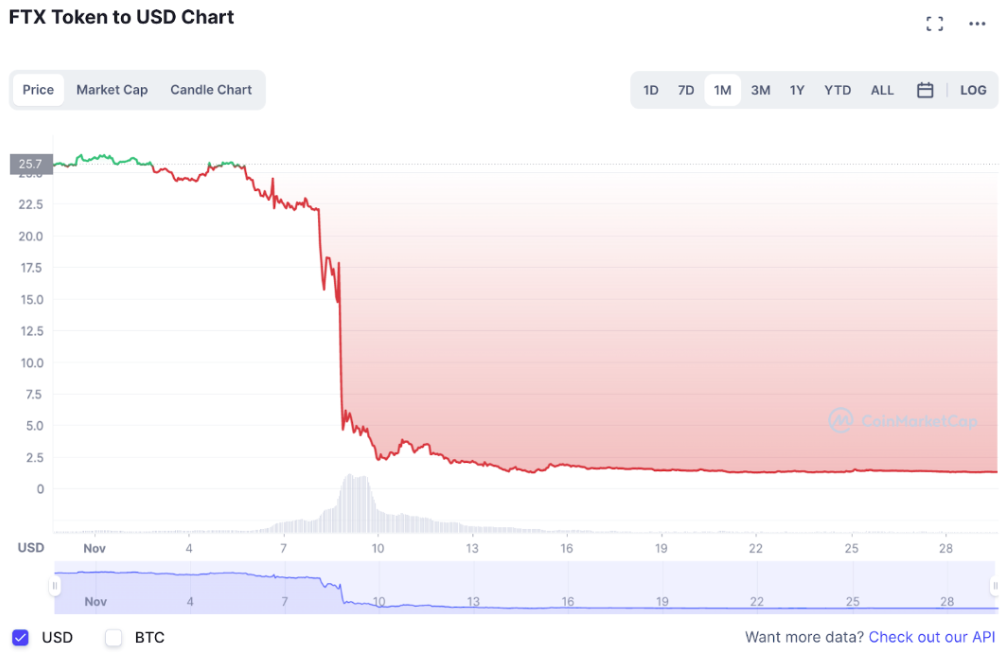
FTX crashed due to a lack of liquidity and mismanagement of funds, followed by large withdrawals from rattled investors. In addition, the value of FTX's native token, FTT, has also pulled down other coins, including Ethereum and Bitcoin.
Binance to fix FTX turmoil?
On November 8th, Binance disclosed that it had reached a non-binding agreement to acquire a non-US FTX business for an undisclosed amount.
Binance, the world's largest crypto exchange by volume, said it would buy its competitor FTX, marking one of the most shocking turns of events in the history of crypto. However, on November 9th, Binance said it was bailing out of the FTX deal after the due diligence analysis raised concerns about the mismanagement of client funds along with other problems.
Following Binance’s bail-out, the crypto market started going down. For instance, the price of Bitcoin steeply decreased from $20,000 on November 8th to $15,800 on the 9th, representing a decrease of over 20%.
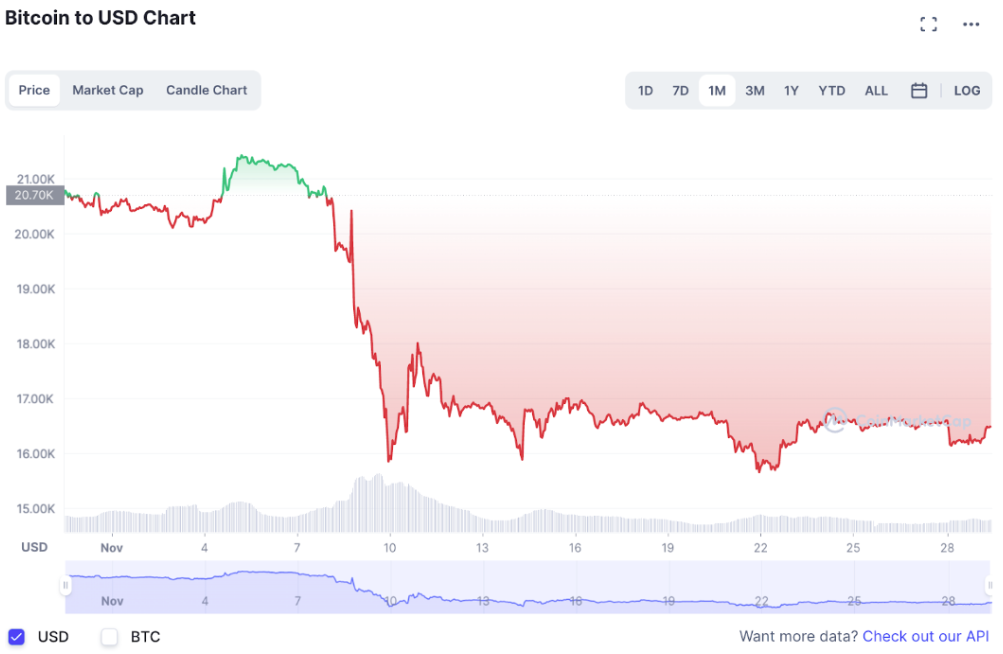
Bankruptcy and hack
On November 11, FTX announced that it had effectively filed for voluntary Chapter 11 bankruptcy proceedings for FTX, FTX.US, and Alameda Research, dragging down CEO Sam Bankman-Fried’s $16 billion net worth to near zero. A Chapter 11 bankruptcy allows a business to restructure its debt while keeping operating. This differs from a Chapter 7 bankruptcy, in which assets are liquidated.
In the evening of the same day, hackers emptied over $500 million from the FTX and FTX.US wallets. Scorechain blockchain analytics tracked the assets out of the FTX account. The hackers managed to steal a total of $566,119,717.04 across several crypto assets. The hack address was, at some point, one of the wealthiest Ethereum addresses.
With such high volatility and so many customers unable to withdraw their funds from FTX, investors are concerned about the fate of their assets on other exchanges. As a response, several crypto companies, including OKX, Binance, and Bybit, announced that they would share proof of reserves with the community to help restore some trust in the market.
Regulators reacting to the FTX collapse
FTX is currently under criminal investigation in the Bahamas, where the exchange is based. As of mid-November 2022, the Securities Commission of the Bahamas (SCB) had frozen FTX’s assets and taken control of the crypto assets held by the bankrupt FTX exchange. On November 18, the SCB said it had ordered Bankman-Fried to move crypto assets to the regulator's wallet in order to protect creditors.
On the US side, other regulatory investigations are ongoing, as well as civil lawsuits that are being filed. The class action lawsuit includes FTX founder Sam Bankman-Fried naming many celebrities who had supported FTX in the past.
About Scorechain
Scorechain is a Risk-AML software provider for cryptocurrencies and digital assets. As a leader in crypto compliance, the Luxembourgish company has helped over 200 customers in 45 countries since 2015, ranging from cryptocurrency businesses to financial institutions with crypto trading, custody branch, digital assets, customers onboarding, audit and law firms, and some LEAs.
Scorechain solution supports Bitcoin analytics with Lightning Network detection, Ethereum analytics with all ERC20 tokens and stablecoins, Litecoin, Bitcoin Cash, Dash, XRP Ledger, Tezos, and Tron with TRC10 and TRC20 tokens. The software can de-anonymize the Blockchain data and connect with sanction lists to provide risk scoring on digital assets, transactions, addresses, and entities. The risk assessment methodology applied by Scorechain has been verified and can be fully customizable to fit all jurisdictions. 300+ risk-AML scenarios are provided to its customers with a wide range of risk indicators so businesses under the scope of the crypto regulation can report suspicious activity to authorities with enhanced due diligence.
.png)

